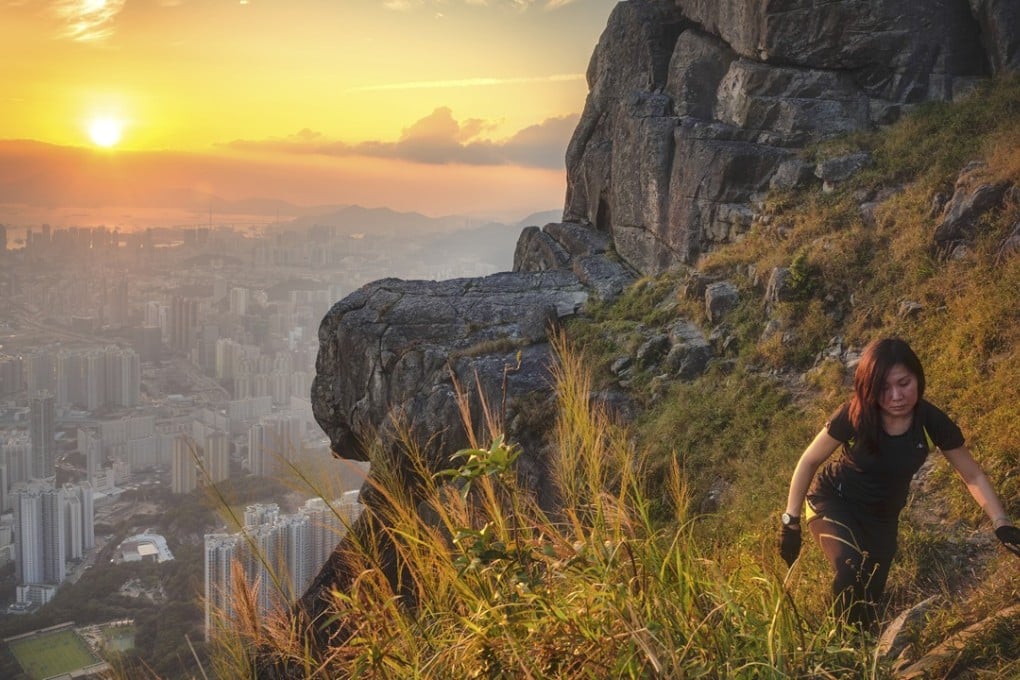Hikers underestimate danger of ‘suicide cliff’ in Hong Kong, experts warn, after tourists trapped during tropical storm
Two visitors from mainland China ran into trouble on Kowloon Peak on Saturday and were rescued after an extensive operation involving 160 firefighters

A rocky section of trail in Hong Kong dubbed “suicide cliff”, where two mainland Chinese tourists were stranded in a tropical storm over the weekend, is increasingly popular with travellers who underestimate the risks involved, according to hiking experts.
The two tourists were sent to hospital on Sunday afternoon and both have since been discharged, according to Hong Kong authorities.
Hong Kong Hikers director Steve Pheby said he knew Kowloon Peak “like the back of my hand” and had hiked it 13 or 14 times in the past 18 months alone. He told the Post the hike was known colloquially as “suicide cliff”.
“My first thought was, what were they doing up there during those winds?” he said. “It’s very dangerous because it’s so steep.”

